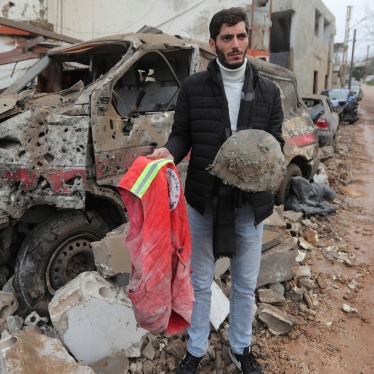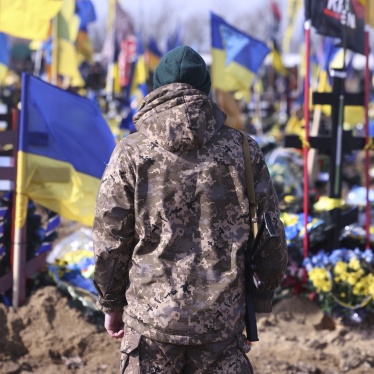(New York)- Concerned governments should impose targeted sanctions against Sudanese officials unless Khartoum immediately agrees to the full deployment of the proposed 20,000-member hybrid international peacekeeping force for Darfur, Human Rights Watch said today.
According to media reports, the Sudanese government has signed off on the second phase of a proposed three-stage “hybrid” African Union-United Nations force for Darfur. The second phase includes 3,000 additional military police and additional equipment, while the third stage – the full hybrid force – would include more than 20,000 additional troops.
“Sudan’s green light for only part of the peacekeeping force is too little, too late, and is aimed only at defusing international pressure and heading off sanctions,” said Peter Takirambudde, Africa director at Human Rights Watch. “Governments should keep the focus on the full international force, which could really help to protect civilians in Darfur.”
The second-phase agreement follows months of negotiations, and Khartoum continues to resist the deployment of the third, most substantial, part of the proposal.
The Sudanese government originally agreed to the proposed international hybrid force at a meeting with the AU and UN in Addis Ababa, Ethiopia, in November 2006. Since then, however, senior Sudanese officials have consistently refused to allow UN troops to deploy, insisting that only African Union troops contribute to the force. Sudan has also made numerous other objections and has tried to rally allied governments behind its position.
“The Sudanese government won’t act to end the violence in Darfur unless it’s pushed to do so,” said Takirambudde. “Darfur’s civilians are paying the price for the international community’s reluctance to impose real penalties on the leaders in Khartoum.”
From 2003 to 2005 in Darfur, more than 2 million people were forced from their homes and at least 200,000 people are estimated to have died. During that period, the Sudanese government waged a brutal counter-insurgency campaign against two Darfur rebel movements and civilians sharing the ethnicity of members of the rebel groups.
Since early 2006, the human rights and humanitarian situation in Darfur has deteriorated, partly due to the Sudanese government’s renewed military offensives in the region, but also because of the increasing fragmentation of the rebel groups, who have also been responsible for human rights abuses.
A May 2006 peace agreement failed to bring security to the region and provoked further clashes, largely because only the government and one rebel group signed the agreement.
“The international community should be showing real resolve to increase, not reduce, the pressure on Khartoum and the rebels to end their abuses against civilians,” said Takirambudde.






